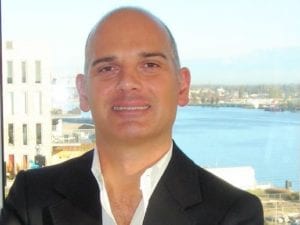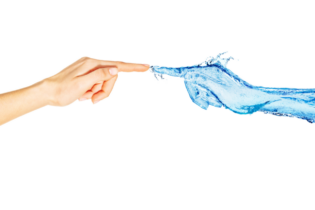Nalco Africa’s vision is to be the global leader in water, hygiene and energy technologies and services.
NALCO AIMS TO PROVIDE and protect what is vital to ensure clean water, safe food, abundant energy and healthy environments. Debbie Besseling speaks to Casimiro da Silva, Nalco Africa’s regional sales manager for Water & Process Services (WPS) Division for the African region, about the solutions that the company offers to the water and process treatment markets of Africa. Nalco Africa, formed in 2010, is a full entity of the Ecolab Company. The organisation offers expertise in the water and energy sectors and that will ultimately assist the region in achieving its goal of sustainable development. What does your position as the regional sales and marketing manager for Water & Process Services Africa entail? Water and Process Services Africa includes the entire sub-Saharan Africa region, which comprises Southern Africa, East Africa and western Central Africa. My function is to lead the team of four district managers covering this region. I am responsible from a financial perspective, for the profit and loss of the WPS, for Nalco Africa, in this region, as well as setting the business goals and defining sales strategies. What options are available for industry to address issues relating to water scarcity in Southern Africa? he issues relating to water scarcity apply not only to South Africa as a country and Southern Africa as a region, but to the entire continent of Africa. From the 1.4 billion km3 of water available in the world, only 35 million km3 is available for human consumption. To put the matter of water scarcity in perspective, 70% of the world population lives in water -scarce regions. Our philosophy is that we promote the recycling and reuse of industrial water so that industry uses less water and subsequently the communities will have more water to use. In a world of limited resources, protecting water is something that all of us can play a role in. It is not just the responsibility of industry, but each one of us can make a difference. Even though water is affordable in Africa, we need to increase awareness of the finite availability of the resource by highlighting recycling and reuse possibilities. Another area of concern is the state of assets. Infrastructure is old and in some cases poorly maintained, resulting in there being excessive leaks in the system and therefore wastage of water. On the industry side, there are several technologies that can be used that will tackle the challenges relating to water shortages, recycling and reuse of water. In industry, the water that is used in manufacturing processes can be recycled and reused. It is about each company’s commitment to the environment as well as the investment they are prepared to make. There are various aspects in this process. Starting with treating the water, followed by reusing, and recycling, and then finally we are able to achieve what is known as ZLD, or zero liquid discharge and that is what companies should strive to accomplish in terms of their sustainability commitments. Please provide an insight into options such as water reuse, recycling and repurposing that can be used effectively by industry Water is a very simple molecule, but is also extremely complex in the way it can be treated. It can be cooled down, heated, and used as a “conveyor belt” or means of transportation, because it can transport materials. It contains dissolved solids and therefore small changes in its environment can make it corrosive, or the tendency to have scaling characteristics. The term water reuse relates to where water can be used for another purpose, for example, the effluent of a wastewater treatment plant where it is sterilised, cleaned, and then at the end of the cycle reused for irrigation. Recycling refers to when the same water already used in the process, goes through a different process and is again used inside the same production area. For example, when water is recycled from the wastewater treatment plant, back to the inlet of the process, or in cooling water systems, when used as a blow down of a cooling tower and fed to the boiler. How does the technology and expertise offered by NALCO assist in achieving the objectives of sustainable development? Our main goal is to assist the industry, recycle and reuse water. All our technologies address this. We structure our business model to address this vision. Globally, Ecolab has over 45 000 employees, with more than 25 200 sales and service engineers that work on-site with our customers and in addition, we have 19 innovations centres all over the world, with over 1 600 research, development and engineering (RD&E) associates and over 6 000 patents working together to constantly innovate our offerings to our customers. One of these is the 3D TRASAR Technology, which is one of the best tools for the reuse and recycling of water. It is a platform of technologies that detects changing process parameters, determines correct actions and delivers unprecedented return on investment. Critical aspects of any sustainability strategy, such as resource management, asset protection, safety and environmental compliance, are all improved with this technology. Nalco creates significant value and we help our customers achieve maximum results.3D TRASAR Technology – Detects, as a detection technology to measure, key system parameters that can include chemistry or process variables to detect upsets (e.g. pH, flow and pressure); Determines, as a control system and/or remote monitoring, the correct response to detected changes in the chemistry or process variables and; Delivers optimal performance and/or savings that result in lowest total cost of operation and/or environmental sustainability for the specific chemical or process application.
3D TRASAR Technology for Cooling Water has saved the amount of water equivalent to the needs of almost 1.5 million people in 2014, so far, and for over 13.8 million people since the start of the programme (based on 95 751.9 litres/person/year). PARETO Mixing Technology effectively balances and provides the optimal feeding solution to significantly improve chemical efficacy while minimising the consumption of key resources, such as water and energy, further reducing the environmental footprint of our customers. What benefits will clients achieve when they use NALCO’s technology in their water projects? Customers will benefit from the expertise of a global network of experts that understand, breathe and live water, all whilst making use of the best-in-class technologies. In addition, they will benefit from reduced water and energy usage, improvements in quality and through-put, and overall a reduction in the total cost of operation of any system. We work on a philosophy of environmental return on investment (eROI). Through our eROI value approach, we demonstrate success in numbers. We quantify and consistently communicate the environmental value along with total cost of operation and performance impact we deliver through our program and services. As an example, globally, the 3D TRASAR systems installed saves over 808 000 ℓ of water every minute. The customer buys a complete package solution, from service, to equipment, to chemicals, to monitoring technologies. Nalco continuously looks for ways to extend its innovative solutions to more industries, geographies and systems. ProjectsA recent case study of savings demonstrated at a leading regional producer of chemical, agricultural, and mining products operating across Africa and the Asia-Pacific region, which operates a major state-of-the-art nitric acid fertiliser plant in South Africa, producing granular, liquid and speciality materials, refers. The plant can deliver either 750 tonnes of production per day as 100% acid, or 1 200 tonnes per day as 60% acid. 3D TRASAR Technology for Cooling Water from Nalco has significantly improved sustainability performance and has reduced costs at this plant. In respect of eROI, the following environmental indicators have been achieved: freshwater demand has been reduced by 22 750 m3 (20%) per year, and wastewater discharge has been reduced by 22 750 m3 (20%) per year. This has resulted in freshwater costs being reduced by R289 000 per year, wastewater costs reduced by R273 000 per year and the overall reduction in the total cost of operation is R562 000. Another case study refers in which a leading automobile manufacturer, operating production facilities around the world, has made use of our advanced APEX technology for paint detackification. This has improved sustainability performance and has resulted in delivering reductions in the total cost of operation. In terms of the environmental indicators, the following results have been achieved: sludge dry solids have increased from 22 to 40% (80% improvement), eliminating >520 tonnes (45%) of sludge for disposal per year. APEX technology is the innovative NALCO paint detackification solution that provides customers with superior sustainability performance, in that it is 99% biodegradable, therefore saving water and energy use, improving overall system collection efficiency and cleanliness.







